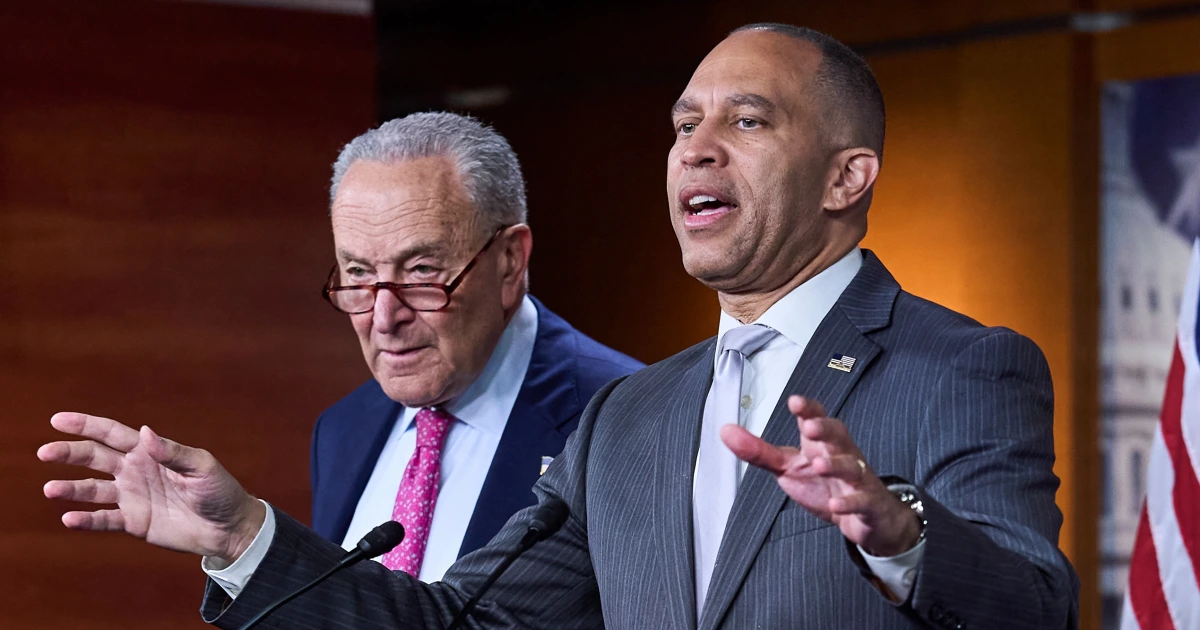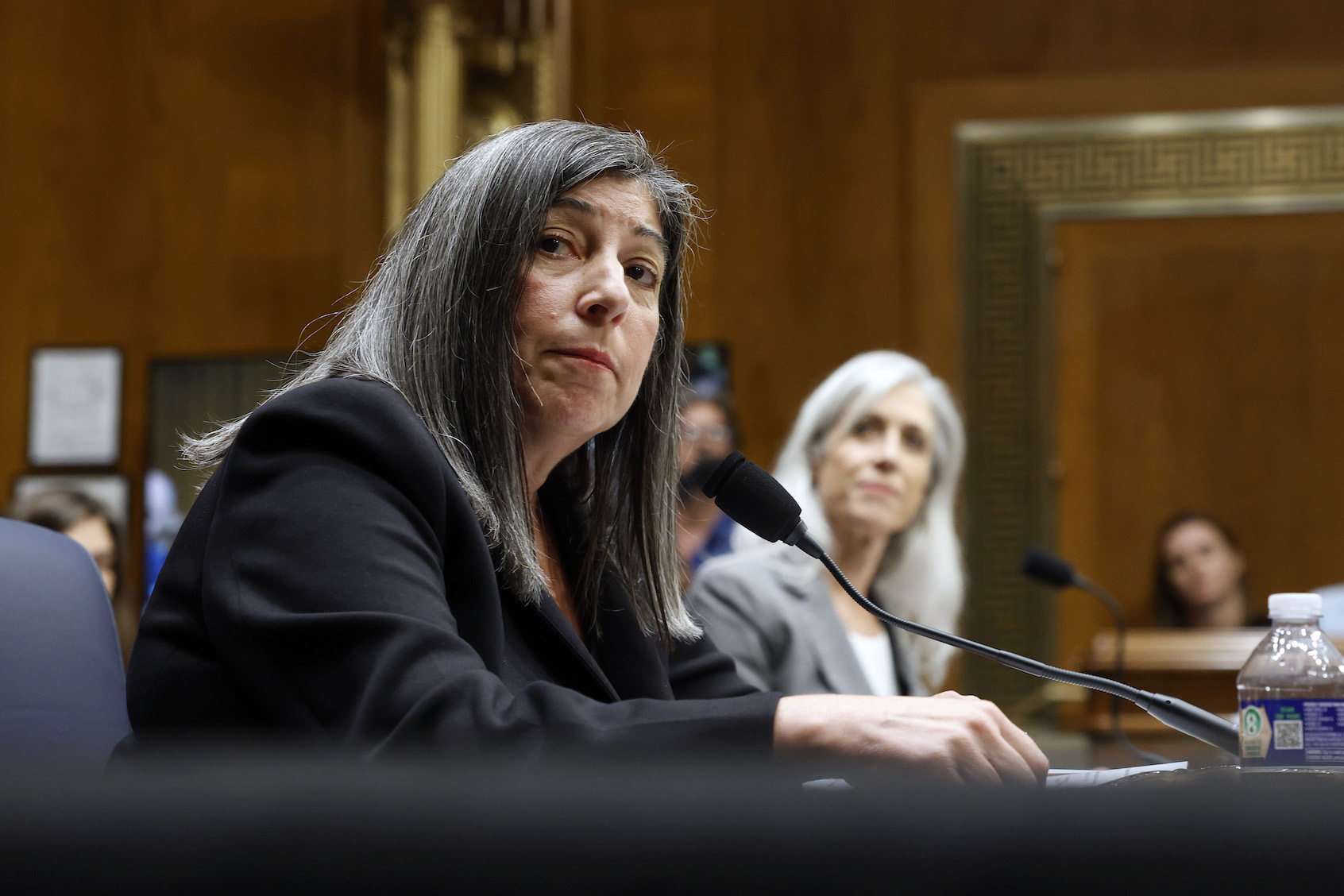
The Chinese military strategist Sun Tzu famously wrote, “He will win who knows when to fight and when not to fight.”
Congressional Democrats would be wise to keep this maxim in mind. Under pressure from their loudest supporters to stand up to President Donald Trump, they are laying the groundwork to shut down the government at the end of this month. But while there are reasonable arguments in support of a shutdown, it’s a fight that Democrats would most likely lose, and they should do everything to avoid it.
On the merits, a shutdown makes some sense. Trump has already refused to spend money appropriated by Congress, so why should Democrats give him more? Furthermore, as New York Times columnist Ezra Klein put it recently in an op-ed that apparently is widely circulating among Senate Democrats, “Donald Trump is corrupting the government — he is using it to hound his enemies, to line his pockets and to entrench his own power. … This is what Democrats cannot fund. This is what they have to try to stop.”
Klein’s description is accurate. But though a government shutdown might represent a symbolic roadblock for Trump’s increasingly authoritarian agenda, it won’t stop him.
Even using health care as a lever would be a tactic that, if it succeeded, could leave Democrats worse off.
Over the years, various political actors have tried to use a government shutdown as a political tool to wring concessions out of their opponents. In 2018-19, Trump shut down the government for five weeks to try to force congressional Democrats to appropriate money for his border wall. In 2013, congressional Republicans tried the same gambit to stop government funding for Obamacare. In 1995-96, House Republicans tried to force Bill Clinton to embrace their budget-cutting plans. Every one of these efforts ended the same way — in abysmal failure, with the party that spurred the shutdown no better off than it was before.
It’s hard to imagine Trump, who fetishizes performative toughness, conceding defeat to Democrats. And why should he? Since when has he cared about the smooth operation of government?
Democrats will undoubtedly convince themselves they while they most likely can’t force Trump’s hand, they can win the battle of public opinion. According to reporting this week by Axios, they plan to do it this time by making the shutdown “about health care, which they bet will win over voters.”
That’s a lousy wager. As Matt Glassman, a political scientist at Georgetown University and expert on congressional procedure, points out, the party responsible for a government shutdown always loses the public opinion battle — and the policy fight that sparked the shutdown in the first place.
Pro-shutdown voices argue that a legislative showdown with Trump is an opportunity to direct public attention toward the excesses and corruption of his administration. This is wishful thinking. Democrats could maintain perfect message discipline during a shutdown, but ultimately, they have zero control over how the Washington press corps covers the story.
By shutting down the government, Democrats would hand Republicans a political club that they could use to beat them.
It’s far more likely that media attention would be focused on those hurt by the government stoppage, and journalists would portray the fight as yet another Washington melodrama. Since Democrats would most likely need to use the Senate filibuster for the shutdown to happen, that would also leave little public doubt about who is responsible for cutting off the government spigot. Democrats would blame Trump, but good luck with all that.
Even using health care as a lever — and preventing cuts in Obamacare subsidies, which were enacted in the GOP spending bill — is a tactic that, if it succeeded, could leave Democrats worse off.
Let’s say congressional Republicans agreed to Democratic demands and stop Obamacare from getting slashed. Democrats could claim victory, but considering that their win would extend subsidies that are already in effect, would anyone notice? The cynical reality is that by fighting to prevent Obamacare premium increases, they would give Republicans a chance to take a huge political problem off their plate.
The other crucial strategic axiom that Democrats should keep in mind is “everyone has a plan until they get punched in the face.”
Since Democrats don’t have majorities in the House or the Senate, they have no control over legislation that Republicans bring to the floor. What’s to stop the GOP from passing a stand-alone bill that would fund the Defense Department or border control and daring Democrats to filibuster it? Would Senate Democrats stand firm even when it comes to voting against the military? What if Republicans passed a budget that met the Democratic demands but left out funding for the Environmental Protection Agency, the Labor Department or what’s left of the Education Department? A shutdown intended to stop Trump could actually give him and the GOP more power to wreak havoc with the federal government. At the very least, by shutting down the government, Democrats would hand Republicans a political club that they could use to beat them.
The problem for Democrats is they are under intense pressure from their own supporters to stand up to Trump. This is part of the reason Democrats are so unpopular right now. Rank-and-file Democrats desperately want to see party leaders stand up to the president — and after Senate Democrats failed to shut down the government in the spring, many see this as their chance to finally draw a line in the sand. That’s not a minor consideration for congressional Democrats. Maintaining the support of the party’s political coalition is essential, and another surrender to Trump would be sure to bring fresh calls for new Democratic leadership on Capitol Hill.
But the sad reality for Democrats is that in Congress, the minority has few arrows in its quiver, especially when Republicans have shown no inclination to stop Trump’s daily assaults on the rule of law and basic democratic norms. Resisting Trump sounds like a good plan, but it’s a lot easier said than done.
Democrats would be much better off fighting Trump on stronger ground — like at the ballot box next year. The simple fact is that the president remains deeply unpopular. While Democrats’ approval rates have plunged, their candidates continue to win big in special elections, and the party is favored in upcoming gubernatorial elections in New Jersey and Virginia. Based on historical precedent, Trump’s poor approval ratings and his self-destructive economic policies, Democrats are well-positioned to pick up seats in next year’s midterms.



